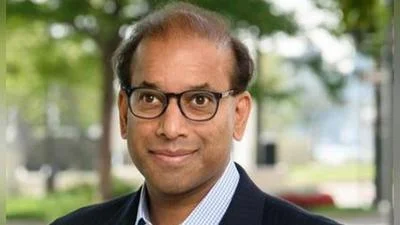Sandy K. Baruah President and Chief Executive Officer at Detroit Regional Chamber | Official website
Sandy K. Baruah President and Chief Executive Officer at Detroit Regional Chamber | Official website
Michigan voters are showing a significant divide in their economic views, largely influenced by party affiliation. This division is highlighted in a recent poll conducted by the Detroit Regional Chamber, which reveals contrasting opinions on President Donald Trump's tariffs and concerns about a potential recession.
Richard Czuba of Glengariff Group, Inc., who has over four decades of experience in survey research, noted that such stark economic polarization among voters is a relatively new phenomenon. According to the poll results released on May 27, 43% of Michigan voters support Trump's tariffs while 51% oppose them. The division becomes more pronounced along party lines: 96% of strong Democrats oppose the tariffs whereas 92% of strong Republicans support them. Independent voters remain split on the issue.
"You can’t get more divided than that," Czuba remarked during a news conference. He emphasized the crucial role independent voters play in shaping Michigan's political landscape, stating, "It’s independents who are going to make decisions in Michigan and so we have to pay particular attention to where they are on all of these issues."
The poll involved telephone interviews with 600 Michigan voters from April 24-28 and carries a margin of error of plus or minus four percentage points.
Since January 2025, there has been a noticeable decline in the number of voters who believe the economy is growing—from 42% at the beginning of the year to just 34%. Democrats' perception of economic growth has notably decreased since Trump returned to office; only 17% now view it as growing compared to 62% earlier this year. Conversely, strong Republican optimism has increased from 22% to 64%.
Concerns about an impending recession have grown among Democratic and independent voters but have lessened among Republicans. These concerns mirror partisan views on inflation as well.
Despite fears about broader economic conditions, personal financial assessments have remained stable; approximately one-quarter of respondents feel worse off economically than they did last year—a figure unchanged since January.
On tariffs specifically, there is consensus across parties that import taxes will lead to higher consumer costs. Yet, Sandy Baruah, President and CEO of Detroit Regional Chamber expressed curiosity regarding future Republican reactions once price increases impact their finances: “But I’m really curious to see how Republicans react once those prices start hitting their pocketbooks.”
The poll also found differences in spending behavior due to tariffs—while many Democrats (59%) and independents (48%) report adjusting purchase timings accordingly; most Republicans (93%) have not altered theirs.
Overall sentiment towards tariffs' impact varies significantly between parties—54% believe they will negatively affect Michigan though three-quarters within Republican ranks disagree believing instead they'll benefit state interests.
This polling data was unveiled at Detroit Regional Chamber’s annual policy conference where leaders convene on Mackinac Island discussing various challenges facing Michigan's economy today.






 Alerts Sign-up
Alerts Sign-up